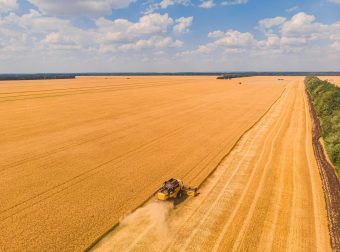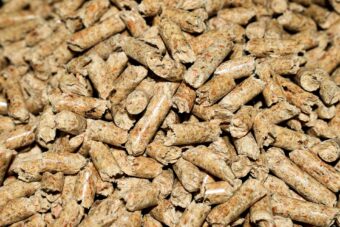
Official data show that biomass is one of Serbia’s most significant renewable energy potentials, especially regarding agricultural biomass. Unfortunately, its potential is almost untapped.
Serbia ranks fifth in Europe in heat energy production (per megawatt hour), right behind Finland, Lithuania, Denmark and Austria. Gas supply is becoming increasingly challenging, which is why there is a growing interest in renewable energy sources, and, thus, in the use of biomass.
Using biomass for energy production brings various benefits and opportunities, from new jobs to boosting local and regional economies.
IN FOCUS:
- MY EV ROAD TRIP TO THE SOUTH OF SERBIA
- MULTIPLE BENEFITS OF BIOGAS – FROM ENERGY TO FERTILIZER
- HYDROGEN IS THE ENVIRONMENTALLY FRIENDLY FUEL OF THE FUTURE
If it is produced sustainably, the amount of carbon dioxide relevant to the climate is zero kilogrammes. Carbon dioxide released by burning biomass was previously absorbed from the atmosphere by plants through photosynthesis and is returned to the atmosphere either through natural decay or fuel production. It practically means that the biomass produced sustainably is carbon neutral, which reduces emissions of harmful gases, lowers energy’s environmental impact and brings us one step closer to achieving the goal of carbon neutrality by 2050.

This energy source can also be used in construction. Still, due to insufficiently developed industrial production, poorly developed policies for the promotion of the circular economy and the public that is inadequately informed about the necessity of the circular economy and sources of financing, the potential of eco-innovations, including those based on biomass, is far from being fully utilized.
Use of biomass
Biomass can be used to generate electricity, biofuel and biogas, as well as for heating, cooking and water heating.
The most widespread use of biomass for heating is the use of pellets, which is very popular due to its high energy efficiency. They are obtained from biomaterials, usually wood.
Biofuels are obtained by processing biomass in production. Thus, bioethanol, an alternative to petrol, is obtained from potatoes, sunflowers, maize and similar biomasses, while biodiesel is obtained from oilseeds and is safe for the environment. Of course, there is also biogas, which is produced by processing animal excrement, solid biomass and sewage waste. It can be used as fue for generating electricity and heating water and it is an excellent alternative to natural gas.
Prepared by: Milica Radičević
Read the story in the new issue of the Energy portal Magazine RENEWABLE ENERGY SOURCES

